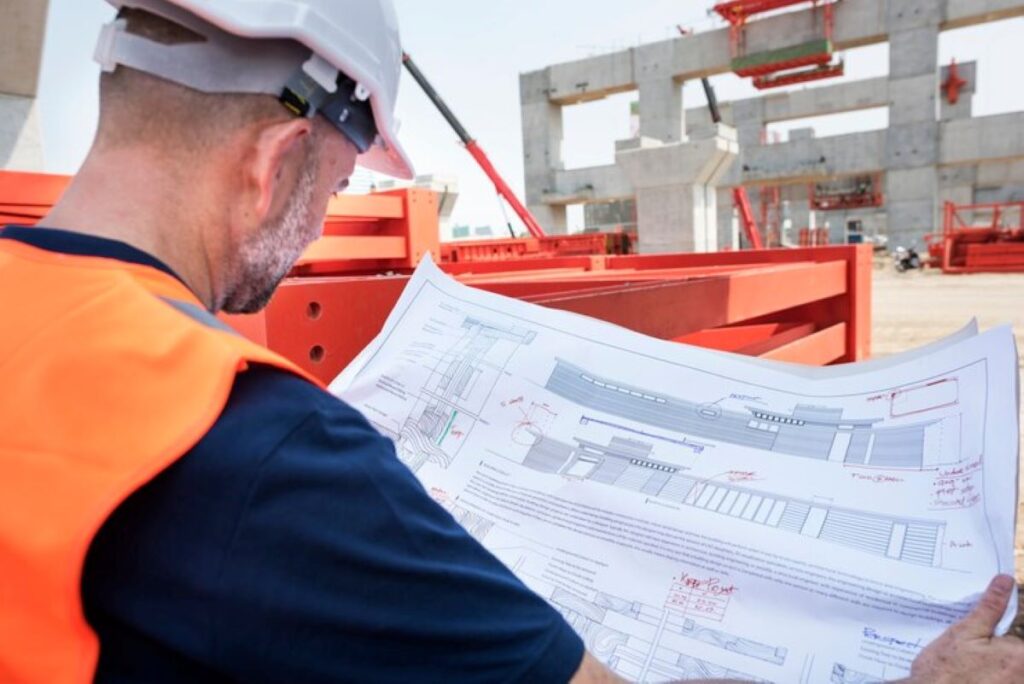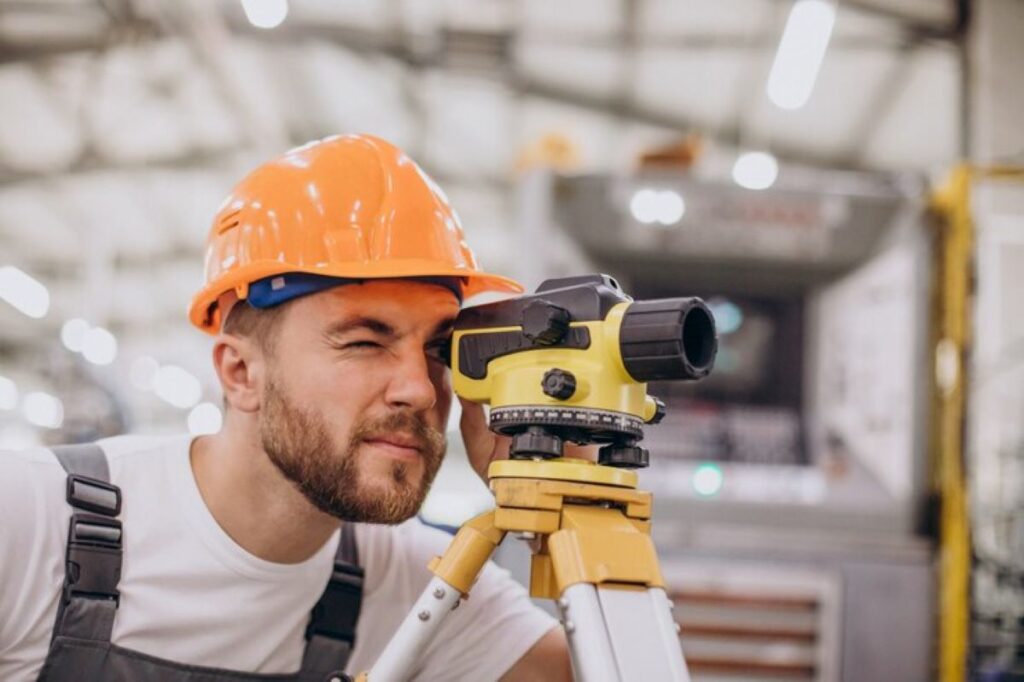When embarking on a construction or property development project in Sydney, engaging a professional surveyor is a crucial step. These experts provide invaluable insights and services that help ensure any project is legally compliant, accurately measured, and designed to prevent future disputes. This article will delve into what you can expect from a professional surveyor in Sydney, providing a comprehensive overview of their role, processes, qualifications, associated costs, and tips for selecting the right surveyor for your needs.
Understanding the role of a professional surveyor
A surveyor plays an essential role in the architecture, engineering, and construction sectors. They are responsible for measuring land and property to provide accurate data that assists in project planning, design, and execution. Their work ensures that developments comply with local regulations and land use policies.
Surveyors are experts in interpreting land data and have a deep understanding of the physical and legal aspects of land ownership. Their expertise not only covers the technical measurements of land but also extends to representing clients during property boundary disputes and facilitating negotiations for land acquisition. This multifaceted role often requires surveyors to engage with various stakeholders, including government officials, property developers, and community members, ensuring that all perspectives are considered in the decision-making process.
Key responsibilities of a surveyor
The responsibilities of a professional surveyor include a range of tasks that contribute to the successful completion of a project. Foremost among these tasks is conducting boundary surveys, which define the legal boundaries of properties to prevent encroachments and disputes. These surveys can be particularly crucial in densely populated areas where property lines may not be clearly marked, thus avoiding potential conflicts between neighbours.
Additionally, surveyors carry out topographic surveys, which involve detailed mapping of the land to identify features such as hills, trees, and water bodies. This information is vital for architects and engineers as they design structures that fit the landscape. Beyond mere aesthetics, understanding the topography can also influence drainage and environmental impact assessments, ensuring that developments are sustainable and harmoniously integrated into their surroundings.
Moreover, surveyors often prepare detailed documents such as plans, maps, and reports that communicate critical findings to clients and stakeholders, ensuring that all parties are informed and compliant with regulations throughout the project lifecycle. These documents serve not only as a record of the surveyor’s work but also as a legal safeguard, providing evidence of compliance and due diligence should any disputes arise in the future.
The importance of hiring a professional
Hiring a professional surveyor is important for several reasons. Firstly, they possess the technical knowledge and practical experience required to navigate the complex regulations associated with land development. This knowledge helps to avoid legal issues or costly mistakes during the planning and construction phases. Furthermore, their familiarity with local laws and practices means they can often expedite the approval process, saving valuable time for developers and clients alike.
Secondly, professional surveyors use advanced technology and tools, such as GPS and CAD software, to collect and analyse data accurately. This technology aids in creating precise measurements and detailed representations of land, which are critical for successful project outcomes. The integration of such technology not only enhances the accuracy of surveys but also allows for innovative solutions, such as 3D modelling, which can provide a clearer vision of how a project will fit into its environment.
Finally, their involvement is essential for maintaining safety standards and compliance with environmental guidelines. A qualified surveyor ensures that all measurements and plans adhere to local laws, safeguarding both the project and the environment. Their role often extends to conducting environmental assessments, which evaluate the potential impact of a project on local ecosystems, ensuring that developments are not only legally compliant but also environmentally responsible. This holistic approach to surveying underscores the importance of their work in fostering sustainable development practices that benefit both communities and the natural world.
The process of land surveying in Sydney
The land surveying process in Sydney typically unfolds in several stages, beginning with a thorough consultation. This initial phase allows the surveyor to understand the client’s needs, project goals, and specific site challenges.
Following the consultation, the professional surveyor conducts a site analysis. This step involves examining the landscape, existing structures, and legal boundaries to gather essential data that will inform the surveying process.
Initial consultation and site analysis
During the initial consultation, it’s essential for clients to communicate all relevant details of the project, including timelines and budget constraints. The surveyor may provide advice on the necessary surveys that need to be completed based on the project requirements.
Once the consultation is complete, the surveyor will perform a site analysis, which is critical to understanding the geographical and legal intricacies of the land. They might assess any topographical features or potential issues, such as easements, that could influence the development.
This thorough analysis lays the groundwork for the subsequent detailed surveying process, ensuring that the collected data is comprehensive and specific to the project at hand. Additionally, the surveyor may engage with local authorities to verify zoning regulations and any restrictions that could impact the project. This proactive approach helps to mitigate potential delays and ensures that the project aligns with local planning requirements.
Detailed surveying and data collection
The next phase involves detailed surveying, where the surveyor uses specialised equipment to collect precise measurements of the site. This data collection may include boundary surveys, topographical surveys, and construction staking, all tailored to meet the project’s demands.
Surveyors may also conduct hydrographic surveys if the project involves water bodies, assessing depths and underwater features. Each type of survey provides valuable information essential for architects and engineers as they design and construct buildings.
Once the data is collected, the surveyor compiles it into comprehensive reports and maps. These documents serve as crucial tools for guiding the project, facilitating communication with other stakeholders, and ensuring compliance with relevant regulations. Furthermore, the integration of advanced technology, such as GPS and 3D modelling, enhances the accuracy of the surveys and allows for a more detailed visual representation of the land. This technological advancement not only streamlines the process but also provides clients with a clearer understanding of the site’s potential and limitations, fostering informed decision-making as the project progresses.

Skills and qualifications of a professional surveyor
The skills and qualifications of professional surveyors are varied and extensive. These qualifications ensure that they can deliver high-quality services that meet client needs and adhere to industry standards.
Education and practical training are the cornerstones of a surveyor’s expertise. Most surveyors hold a degree in surveying, geography, civil engineering, or a related field, equipping them with the foundational knowledge required in this profession.
Educational requirements for surveyors
In Australia, aspiring surveyors must complete a formal qualification, such as a Bachelor of Surveying or an equivalent degree. This academic background covers essential principles of surveying, land laws, and advanced technological applications in the field.
Moreover, aspiring surveyors often undertake an internship or practical training program to gain hands-on experience under the supervision of a registered surveyor. This stage is vital for honing their skills and understanding the real-world applications of their education.
Essential skills for successful surveying
Aside from formal qualifications, technical skills are crucial for surveyors. Proficiency in using surveying equipment, such as theodolites and GPS, is essential, as is familiarity with specialised software for data analysis and mapping.
Moreover, strong analytical skills enable surveyors to interpret data accurately and make informed decisions throughout the surveying process. Effective communication skills are equally important, as surveyors must liaise with clients, architects, and engineers to relay critical information accurately.
Finally, attention to detail and problem-solving skills enhance a surveyor’s ability to identify potential issues and propose effective solutions during the planning and execution phases of a project.
Costs associated with hiring a professional surveyor
As with any professional service, the costs associated with hiring a surveyor can vary significantly based on various factors, including the complexity of the project and the specific services required.
When budgeting for surveying services in Sydney, it is crucial to consider the scope of work involved, as different types of surveys have different pricing structures. For instance, a basic boundary survey is typically less expensive than a comprehensive topographic survey that covers an expansive area.
Factors influencing the cost of surveying services
Several factors can influence the cost of hiring a professional surveyor. One of the primary considerations is the size and complexity of the land being surveyed. Larger or more complicated sites may require more time and resources to measure accurately, thus escalating costs.
The location of the property can also play a significant role. Urban areas, such as Sydney, might see higher prices due to increased demand for surveying services and the complexities associated with navigating local regulations.
Additionally, the level of experience and certification of the surveyor can impact pricing. Highly qualified surveyors with extensive experience may charge a premium for their expertise.
Understanding your surveying quote
When receiving a quote for surveying services, it’s essential to ensure that it is detailed and transparent. A comprehensive quote should include a breakdown of all expected costs, the scope of services offered, and the expected timeline for project completion.
Clients should also inquire about any additional fees that may arise during the surveying process, such as costs associated with re-surveys or specific requests for additional data. Understanding these elements will help avoid surprise charges and allow for better budgeting. Click here to get more about the best land surveyor in sydney.
Choosing the right surveyor for your needs
Selecting the right surveyor is a vital step that can significantly influence the success of your project. It’s essential to take the time to research and evaluate potential candidates thoroughly.
Begin by seeking recommendations from colleagues or industry professionals who have had positive experiences with surveyors. Online reviews and testimonials can also provide insights into the reputations of different surveyors in Sydney.
What to look for in a surveyor
When evaluating surveyors, look for qualifications, certifications, and memberships in professional organisations, such as the Institution of Surveyors, Australia. These affiliations can often indicate a higher standard of professionalism and adherence to industry standards.
Another important consideration is the surveyor’s experience with similar projects. A surveyor who has successfully completed projects comparable to yours will likely better understand the specific requirements and challenges involved.

Questions to ask potential surveyors
Before finalising your choice, it is advisable to ask potential surveyors several pertinent questions to gauge their expertise and compatibility with your project:
- What types of surveying services do you offer?
- Can you provide references from previous clients?
- How long do you anticipate the surveying process will take?
- What are your fees, and what factors might alter the final cost?
- How do you communicate findings and progress to your clients?
By asking these questions, you will gain a deeper understanding of the surveyor’s capabilities and how well they align with your project needs, ultimately aiding in your decision-making process.

